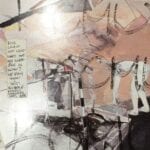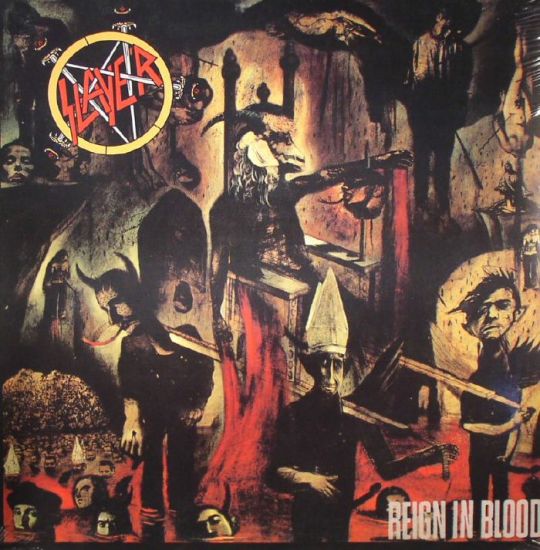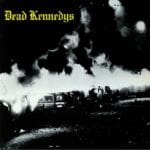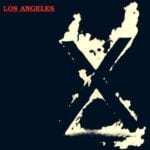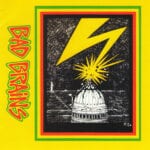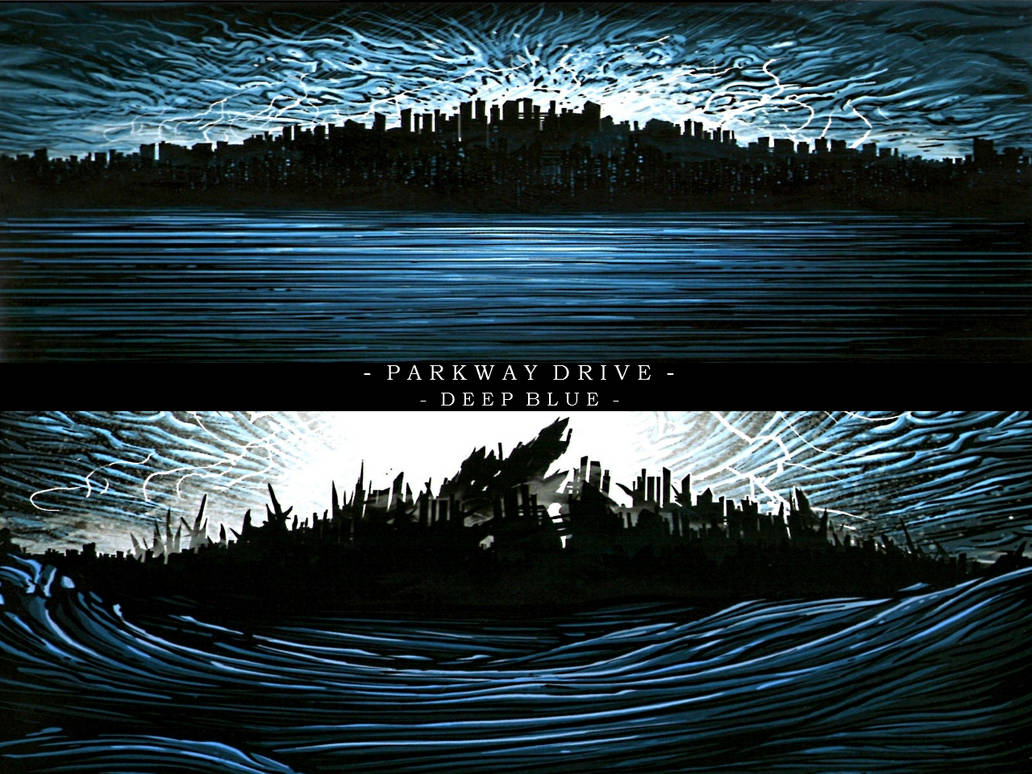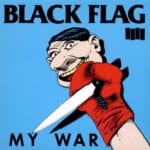ALBUM REVIEW: BAD BRAINS- Bad Brains
BEST SONGS: Sailin’ On, Banned in D.C., I, Pay to Cum, Right Brigade
“When I think of a great frontman, like a really charismatic guy who everybody in the audience immediately wants to be, I think of Iggy Pop and I think of H.R. from Bad Brains”. Pretty high praise from Henry Rollins, Black Flag’s most integral and prolific lead singer, don’t ya think? Who, or what, could be such a force as to cause hardcore’s buff dad to put you on equal footing as Iggy motherfucking Pop? Well, Bad Brains of course. “What’s a Bad Brains?” you ask, wide-eyed in anticipation of yet another WKNC review of an integral punk group, lip quivering on the verge of tears because you can’t take another four paragraphs justifying how music that sounds like shit is actually good. Don’t worry! This week’s spotlight is on Bad Brains, the undisputed kings of hardcore. Outshining even essential acts like Minor Threat, they made every soul in a mile radius of their presence look down at their own bodies and ask why they haven’t been living through the Bad Brains lifestyle for the entirely of their previously miserable lives. They made people check their turntables after throwing on their newest single because the noises coming from it didn’t sound like music that humans were even capable of creating yet. They made Guinness Book of World Records give them an award for the fastest band of all time. And the best part, they were good. They were really really fucking good. While their contemporaries were pushing to play the fastest and the loudest, Bad Brains looked at each other and said “yeah I guess we can do that too” and played the loudest and fastest of them all. But beyond this, this naked engine nearing aneurysm intensity, Bad Brains was composed of incredibly talented musicians equipped endless creativity and an uncanny amount of stamina. Though their later work was not at all tainted by age or a lack of ingenuity (I Against I is a masterpiece) their eponymous 1982 debut, colloquially known as the “Yellow Tape” is the most essential hardcore punk album ever recorded.
Unlike bands like the Damned, or the Germs, or even Black Flag, Bad Brains was not originally founded upon a commitment to aggression and anarchy. They began as a jazz fusion group. Yes, you read that right, Jazz Fusion, a genre not only infinitely distant from punk’s insistence on id-focused simplicity but one which demands incredibly high levels of skill and a thorough understanding of music theory. So, in their embryonic stages, Bad Brains (then called Mind Power) were obviously leaps and bounds more technically proficient than any other punk band in their native Washington D.C. “Perfect,” the frontman for a completely hypothetical hardcore band who would need to compete with Bad Brains said to himself, “the Bad Brains may be way more talented than me and my sweaty group of pasty bad boys, but they don’t have anywhere near the attitude or vigor to even be considered in the same vein!”. But much to the chagrin of our hypothetical punker, Mind Power’s guitarist, Dr. Know, happened to catch a 1976 television profile on the then up-and-coming British punk scene. His mind blown by a newly discovered weapon against the establishment, Dr. Know bought every Sex Pistols, Ramones, and Damned record he could find before convening with his bandmates and urging them to adopt a radically new style. They were convinced and Mind Power was forever rebranded as Bad Brains, a term taken from a Ramones song which served as an analog to their former head-centered title. After practicing for hours upon hours in the basement in their friend’s mother’s basement, Bad Brains began booking shows in the three D.C. clubs which supported the still very young punk rock ethos. While frequenters of proto-hardcore shows were initially drawn to the novelty of Bad Brains being an all-black punk band, it soon became clear that the group was a spectacle of fury and showmanship that no other D.C. contemporary could compete with. The band was ridiculously fast, putting the Ramones and Stooges to shame with tempos which would have caused complete implosion under normal circumstances. Bad Brains was also tight. Really fucking tight; there was no wavering when their songs lurched into breakneck pace, as Dr. Know would even rip into solos (a cardinal sin in most punk circles) that scorched the bung hair off Minor Threat purists who claimed aggression’s only avenue was through the power chord. H.R, the lead singer and front man would flail around wildly while his band was focused in their blistering craft, acting as the mouthpiece of a rabid flutter while he fell on his back and writhed around before jumping into the crowd and screaming in their face as they smothered in his sweat-drenched frame. What a performance. D.C. degenerates couldn’t believe what they were seeing. The area had never known anything close to a punk scene, and now it appeared like they had been gifted, simply put, the best band of all time. Nobody could match their energy, technical skill, or ability to meld the crowd and performers into a single volatile goo. As such, they attracted a huge following almost instantly. H.R. notoriously would request over a hundred people for the guest list. That, combined with the natural frenzied disorder associated with any Bad Brains-caliber performance, quickly got them banned from the three D.C. clubs that would even think of booking punk shows. So what does an insanely popular, yet underground band who has been blacklisted from their native Washington do? Well, move to the Big Apple of course! Bad Brains evacuated D.C. for the REAL DEAL DADDIO PUNK ROCK NEW YORK CITY BABY and almost immediately earned themselves a headlining spot at perhaps punk’s most important venue: CBGB. It was during their NYC libertine residency that the band recorded their seminal first album. Angry, playful, virtuosic, this self-titled statement to everything hardcore is an essential addition to any collection which aims to document an evolution of American music. Every single song is mind-bogglingly perfect. It’s briefest cuts require the listener to ask themselves “was what I heard real? Are people actually capable of making something like this?” while the slower ones provide breathing room and showcase Bad Brains’ ability to perfectly pace an album. Pacing in a hardcore album? “These guys must be on a totally different plane from the rest of us”, you say, finally excited that we don’t have to cover a deconstruction of music itself yet again. And you’re right, faithful reader: Bad Brains is unlike any other band which came before or after, and their self-titled debut is the required first-taste of their galaxy-brained musicianship.
“Bad Brains” captures a crossroad in the band’s sound and, to a larger extent, worldview, which saw the four Baddest Brains adopt Rastafarianism. This meant a stronger spiritual message in their music, an adoption of reggae and dub by the band, and an alienation from racists who thought that Rastafarianism could be equated with violence and other racists who were pissed that the band growing dreads was a sign that they were moving away from the shaved-head mandate of hardcore. In actuality, the implementation of a strong spiritual message within the album, coupled with the sonic diversity of melding reggae with hardcore, enhanced both the pace of the album and the overall quality of its songs. From the beginning of this half hour epic, Bad Brains incredible songwriting suffocates its listener in “Sailing On”: a Beatles-esque mosh fest whose brevity is equally as impressive as its ear-worm, call-and-response chorus. Dr. Know shreds so hard that it sounds like it’ll melt any CD player unfortunate enough to challenge it, while H.R.’s vocals are brilliantly placed behind this crunchy guitar with a reverb that makes it easily distinguishable from the delicious commotion produced by his bandmates. Beyond this, the singer’s full arsenal of screeches, gulps, bellows, and growls instantly distinguishes him from even the most pissed off Ian McKayes and Henry Rollins. “Banned in D.C”, a reference to the band’s blacklisting from all Washington punk clubs, pounds its unsuspecting listener into a higher orbital as soon as its mockingly militant opening is seized by the H.R. and Dr. Know’s respective vault into white-hot power chords and riot-inducing yelps. H.R. often sounds on the edge of collapse, his lyrics rattling off so fast that he must surely be on the verge of sloppiness or total collapse. This is all before he anchors it back with such ease that it sounds almost like a second thought. “Pay to Cum” is just fast. That’s all I can really find within myself to describe it. It’s brilliant. It should be played to aliens when they are trying to decide whether or not to destroy humanity as the sole relic of our civilization just because, to me, it’s almost unfathomable that this music was actually created. It’s just that fucking fast.
When H.R. screams, he goes fully in, incinerating his vocal cords in a raspy grind. But Bad Brains isn’t just a band for pissed off teenagers; H.R.s versatility as a singer allows these moments of anger to be supplemented by an undeniable talent which can meld the band’s brand of punk into an innumerable amount of other genres (reggae, doo-wop, guitar pop, metal, etc.). And at its core, this is what made Bad Brains so important was that their commitment to punk was not out of convenience or pure angst, but rather an understanding of the lasting vitality that naturally comes with a genre infused with genuine expression. Through their continued showcase of remarkable talent and innovation, Bad Brains legitimized hardcore more than any other group.
-Cliff


